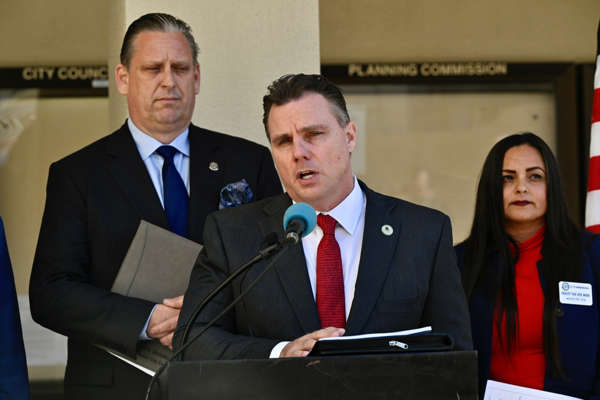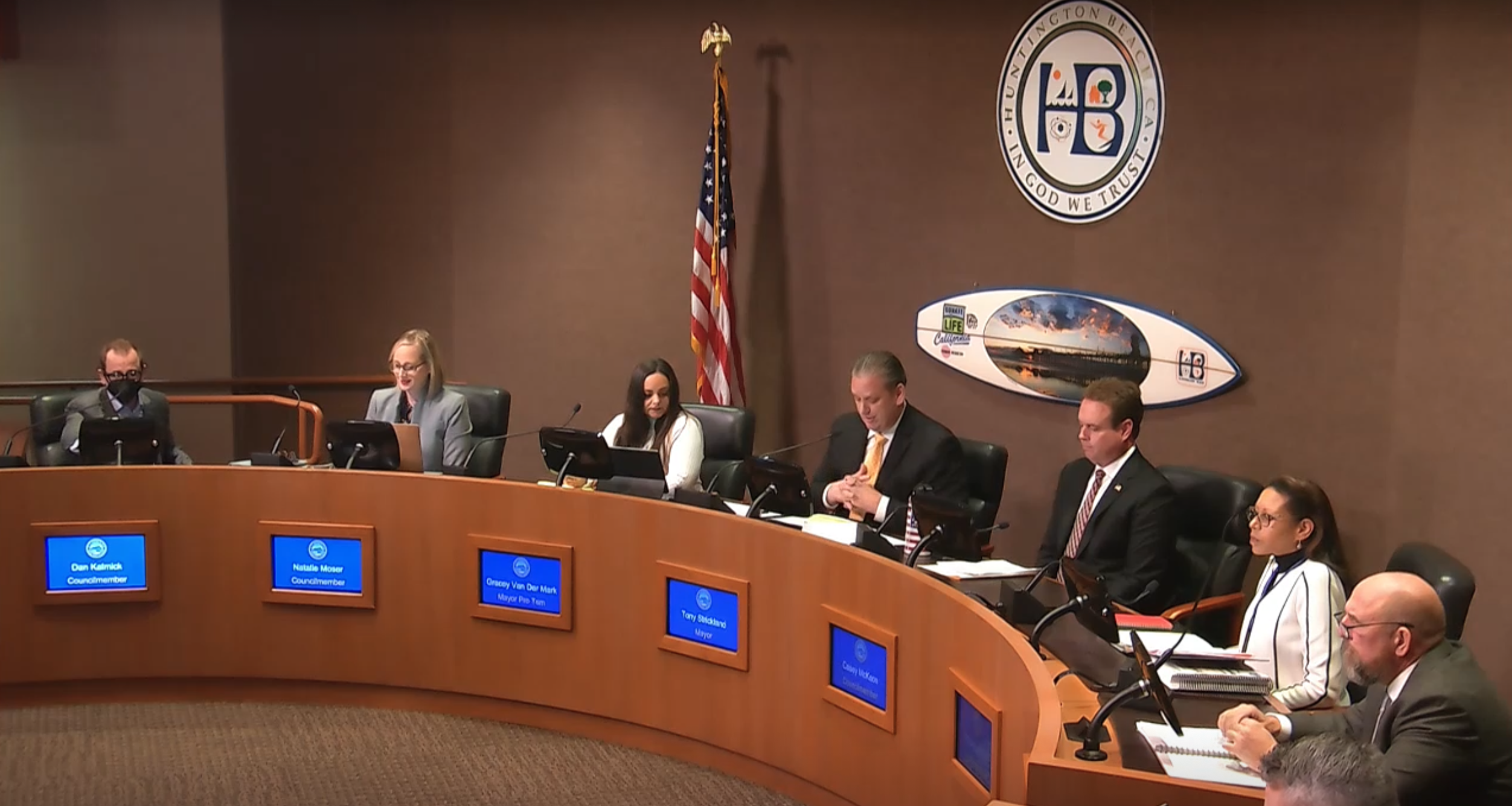“Anything short of wholesale change shows a rubber stamping of the status quo,” Huntington Beach Mayor Tony Strickland said.
The Huntington Beach City Council voted Jan. 17 to change their rate plan with the Orange County Power Authority, saving taxpayers over $200,000 every year.
The new plan will take Huntington Beach’s energy accounts from OCPA’s most ardent option, called the “100 percent renewable energy plan,” to the 38 percent option.
The non-profit Orange County Power Authority (OCPA) was launched in December 2020 with a mission to offer green energy to the residents of Orange County, at a price comparable to Southern California Edison.
But the fledgling OCPA has had a rough start, with questions about the experience and transparency of leadership, and the inability of the authority to deliver the promised rates and adequately advise customers of the various service options.
The power authority’s CEO Brian Proboisky has also come under scrutiny for his inexperience in energy matters.
“You should get someone who is a technocrat,” Huntington Beach Mayor Tony Strickland stated. “If you know their politics, then they’re not the right person for a position of that magnitude.”
The Huntington Beach City Council’s vote of 4-3 demonstrated the council’s attempts to balance fiscal responsibility to taxpayers with an environmentally conscientious option, utilizing the OCPA’s Basic Choice Plan. Councilmember Casey McKeon suggested the savings could be used for other city needs like enforcing the city laws regarding homelessness.
The vote fell along elected lines, with Mayor Tony Strickland, Mayor Pro Tem Gracey Van Der Mark, and Councilmembers Casey McKeon and Pat Burns, all whom were elected this past November, voting to save taxpayers money. The other councilmembers, Natalie Moser, Dan Kalmick, and Rhonda Bolton, voted against the plan.
OCPA’s policy of automatically enrolling residents brought transparency questions to the forefront as customers found higher power prices and difficulties with the process of opting-out of the program.
Strickland noted, “It really became a basic back door tax increase. It made it incredibly hard to opt out.”
The vote by Huntington Beach City Council comes on the heels of an exit by the Orange County Board of Supervisors to withdraw from service following an audit which found that Southern California Edison offered residents prices that were 7 percent cheaper than OCPA.
OCPA responded by stating the exit “removes consumer choice and market competition, adds dirty power to the energy grid, raises rates, and creates an unnecessary liability for the county.”
Strickland said, “Any government organization that begins with serious questions of leadership qualification, basic transparency failures, early executive resignations, city investigations, county investigations, state investigations, grand jury reports, and even whistleblower complaints needs more than just a look in the mirror.”
Despite these changes, OCPA still has more than 211,000 customers and said they plan to provide more information to member agencies through a series of town halls and public meetings.

 Environment3 years ago
Environment3 years ago
 Community3 years ago
Community3 years ago
 Uncategorized2 years ago
Uncategorized2 years ago
 Uncategorized11 months ago
Uncategorized11 months ago
 Community3 years ago
Community3 years ago
 Uncategorized3 years ago
Uncategorized3 years ago
 Community3 years ago
Community3 years ago
 Community3 years ago
Community3 years ago








